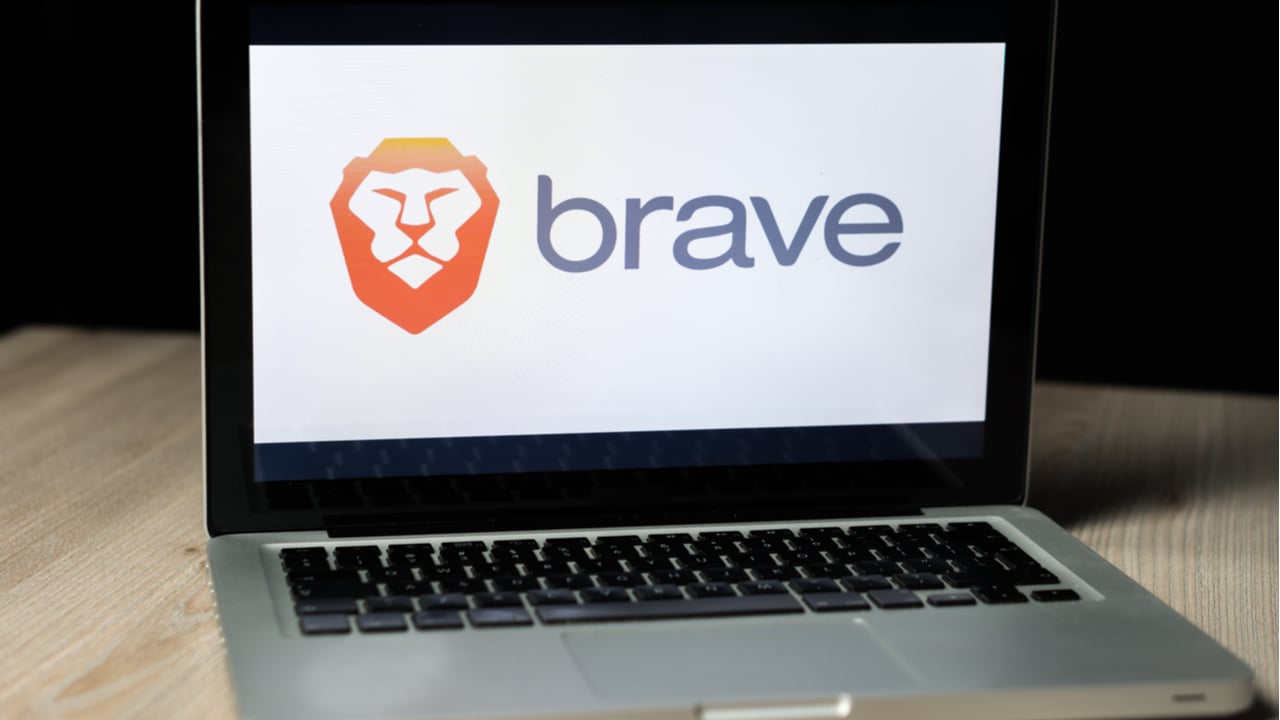
Web3 companies can utilize the Stripe-hosted fiat-to-crypto onramp to allow their customers to buy crypto at the “precise moment they need it.”
Internet payment processor Stripe has introduced a fiat-to-crypto onramp to address the "cold start problem" faced by Web3 companies, as a result of customers not having “crypto in their wallets to carry out transactions.”
According to a May 4 statement, Stripe’s newly launched fiat-to-crypto onramp – which will be hosted by Stripe itself – will allow Web3 companies to offer US-based customers the ability to purchase crypto "at the precise moment they need it," without the need to embed any code into a website or app.
Instead, customers will be directed to a link to convert their fiat into crypto.
Guillaume Poncin, head of engineering for crypto at Stripe said compliance-related tasks for Web3 companies using the onramp will be handled by Stripe – such as conversion and authorization optimization, identity verification and fraud prevention – in an effort to help "customers start using Web3 services quickly and safely."
It was noted that built-in tools for fraud detection and identity verification were implemented to support companies in meeting its Know Your Customer (KYC) and compliance requirements.
We’re introducing a Stripe-hosted fiat-to-crypto onramp (no code required) and unlocking the waitlist for the embeddable onramp. https://t.co/U9OW2cjFrZ pic.twitter.com/jjmkDUiOqc
— Stripe (@stripe) May 4, 2023
The implementation of the new onramp service is aimed at supporting Web3 companies provide a user-friendly way for customers to top up their crypto wallets. It noted:
“Companies interested in offering cryptocurrency and blockchain-enabled experiences often face a cold start problem: Their customers don't have the crypto in their wallets to carry out transactions.”
Several Web3 companies including privacy-focused browser Brave, decentralized finance (DeFi) protocol 1inch and blockchain protocol Lens Protocol, have implemented Stripe’s fiat-to-crypto onramp, according to the statement.
James Mudgett, vice president of Web3 products at Brave stated that the service will allow the platform to “reach new Web3 users.”
Meanwhile, Sergei Kunz, cofounder at 1inch, highlighted the importance of building “bridges between Web2 and Web3," adding that Stripe's experience with Web3 companies makes it "well positioned to help."
Related: Crypto-friendly Stripe weighs public offering: Report
Speaking to Cointelegraph, Ohm Shah, co-founder of Wallet Guard stated that Stripe’s new offering could “allow for many people to easily enter into Web3.”
However, Shah stressed the importance of conducting due diligence before purchasing digital assets, even if the customer is familiar with the company providing the fiat-to-crypto onramp. He noted:
“While on-ramping with Stripe to purchase your very first NFT can be exciting, it’s important to consider how easy it is to lose your assets as all it takes is one malicious signature.”
This comes after mobile payments service Venmo announced its own fiat-to-crypto payment service on April 28.
During an interview at Consensus 2023, PayPal executive Jose Fernandez da Ponte said the new feature would provide a use-case for digital assets, because now crypto will be used for “fast and free near-instant transfers between Venmo wallets and PayPal wallets, which is basically connecting two of the largest networks and wallets in the country.”
Meanwhile, a day earlier at Consensus, Robinhood announced its own fiat-to-crypto on-ramp on April 27 – Robinhood Connect – allowing users to directly purchase and sell crypto using a credit or debit card, either in their self-custody wallet or natively in Decentralized applications (DApps).
Magazine: How to control the AIs and incentivize the humans with crypto

Privacy-focused browser Brave just added a new feature that gives users the ability to sell crypto assets within its native Web3 wallet. The software firm says Ramp Network’s off-ramp solution is now integrated into the browser’s Brave Wallet, allowing users to trade crypto assets for fiat currencies without going through a centralized third party like […]
The post Privacy Centric Brave Browser Now Allows Crypto Asset Selling Inside of Wallet Extension appeared first on The Daily Hodl.

In a move that will integrate high-performance blockchain wallets and privacy-focused browsers, smart contract platform Solana (SOL) announced a business partnership with Brave browser. Brave says in a press release that Solana will get access to over 40 million users on the browser, as well as over one million creators. “Brave will integrate the Solana […]
The post Solana Poised To Add Millions of New Users As It Teams Up With Privacy-Focused Browser appeared first on The Daily Hodl.
 Brave, the company behind the Brave browser, has partnered with Solana to provide support for the blockchain directly from its browser. According to a press release, the Brave browser will now default to Solana for cross-chain and decentralized app support. Brave users, that are now in the millions, will have access to a Solana wallet […]
Brave, the company behind the Brave browser, has partnered with Solana to provide support for the blockchain directly from its browser. According to a press release, the Brave browser will now default to Solana for cross-chain and decentralized app support. Brave users, that are now in the millions, will have access to a Solana wallet […]
More than 42 million Brave users will soon be able to access Solana dApps within Brave.
During Solana's Breakpoint conference in Lisbon, Portugal, executives at Brave and Solana Labs announced that the Brave browser would integrate with the Solana (SOL) blockchain and feature Solana decentralized applications, or dApps, on its browser. Simultaneously, Solana will promote the adoption of Basic Attention Tokens (BAT), the native digital currency of the Brave Browser, among its dApp users.
We've partnered with @solana to integrate it into the browser and make it the default for DApp support. We will soon bring best-in-class wallet features for the Solana blockchain into our desktop & mobile browsers. #BreakpointLisbon https://t.co/tTB7NXKWjI
— Brave Software (@brave) November 8, 2021
Brendan Eich, CEO, and co-founder of Brave, had the following to say regarding the development:
With more and more users and creators requiring tools for fast and affordable access to the decentralized Web, this integration will seamlessly pave the way for the next billion crypto users to harness applications and tokens.
Meanwhile, Anatoly Yakovenko, CEO of Solana Labs, added:
For billions of people, the mobile web will be their gateway to Web3,” said Anatoly Yakovenko, CEO of Solana Labs. “Deep integration with browsers is key to helping DApps build the best web experiences. Brave’s announcement of Solana wallet support across all versions of their browsers is an important step to onboard the next billion users to Solana.
Brave is a privacy browser that enables users to block ads, trackers, and cross-site cookies. The browser also features a built-in digital wallet, similar to MetaMask that allows users to deposit their crypto and interact with dApps. Additionally, users can utilize BAT to tip their favorite content creators on platforms such as Twitter. The Brave Browser has 42 million monthly active users and 1.3 million content creators.
Solana is a blockchain designed to power dApps and decentralized finance, or DeFi, protocols. The network is known for its speed and sub-cent transaction fees. Notable entities using its blockchain include cryptocurrency exchange FTX, music streaming platform Audius, USD Coin (USDC), NFT hosting platform Metaplex, and high-frequency trading firm Alameda. SOL has recently surpassed Cardano (ADA) and Tether (USDT) to become the fourth-largest cryptocurrency in the world by market capitalization.

Brave hopes users will want to search the web without being tracked.
Crypto-powered web browser Brave has branched out into the world of search with a new privacy-protecting beta search engine.
The platform aims to take on the likes of Google, which harvests personal data and browsing habits while serving up targeted ads and tailored search results. But it faces an uphill battle against the tech giant which accounts for more than 90% of the market.
In an announcement on June 22, Brave stated that it had launched Brave Search beta built into its browser, offering users “the first independent privacy search/browser alternative to big tech.”
Users wanting to test drive Brave’s non-tracking privacy-focused search engine will find it at search.brave.com. It has been built on top of an independent index that does not track users or their searches and clicks and will appeal to those wanting to avoid surveillance-based tech products such as Google search or Microsoft Bing.
The search engine will include a “Google fallback mixing” option for those that still want to use results from the global tech giant’s search engine, or when not enough results are returned.
Brave Search will not show ads initially, avoiding the primary way that Google monetizes its search results. However, it will offer free, ad-supported search in future alongside a paid option without ads and will incorporate its Basic Attention Token (BAT).
“When we are ready, we will explore bringing private ads with BAT revenue share to search, as we’ve done for Brave user ads.”
Chief Executive Brendan Eich, who led Mozilla and Firefox before co-founding Brave, said that getting a lot of people to use the search function is crucial to its success as their collective actions will anonymously steer Brave servers toward the highest-quality search results.
Related: Chinese search engines block results for top crypto exchanges
Brave’s privacy-focused browser currently has 32 million monthly active users after hitting 25 million in February, however that is a drop in the ocean compared to Google’s dominance over browsing with its Chrome browser and web search.
According to Statcounter, Google commanded a whopping 92.2% market share for global search engines in May 2021, with Bing coming in second at 2.27%.
There are already privacy-oriented search options available such as Duck-Duck-Go which provides privacy tools such as tracking blockers. It claims to have between 70 and 100 million users according to Tech Crunch, but it is still an uphill battle against the all-consuming Google Goliath.
Brave’s Basic Attention Token (BAT) is now part of the Binance Smart Chain (BSC) ecosystem, according to a blog post from Brave.
According to Brave, BAT is now available as a wrapped token on BSC. BAT is natively built on the Ethereum blockchain and continues to circulate on that chain. This news simply means that the original token can be exchanged for a BSC-based BAT token of equal value.
The decision allows BAT holders to use the token with various BSC-based DeFi apps such as Pancake Swap and Beefy Finance. Xiaoguang Zhang, Binance Smart Chain Ecosystem Coordinator, added that the feature will “introduce seamless UX together for crypto users to access DeFi and Dapps in BSC and other blockchains.”
The decision appears to be partially motivated by the need to escape Ethereum’s high transaction fees. Brave CEO Brendan Eich says that the firm is enthusiastic about Binance Chain’s “low transaction fees and scalability.” The announcement also suggests that Brave is exploring BSC as means of managing peer tipping.
It is not clear when the feature will go live. Although the Brave browser’s built-in wallet already supports both Ethereum and BSC, more thorough support will be available later this year.
With a market cap of $1.7 billion, BAT is the 57th largest crypto token, making it one of the more significant projects that Binance Smart Chain has attracted to its ecosystem.
Brave previously partnered with Binance to provide a home page trading widget in March 2020. That news suggested a “long-term partnership,” implying that more joint efforts may be on the way.
The BAT token is also listed on Binance and Binance.US.
Disclaimer: At the time of writing this author held less than $75 of Bitcoin, Ethereum, and altcoins including BAT.